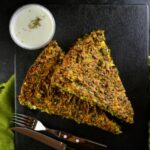Fats that help, fats that harm
The following is an edited transcription based on the above video. Any statements or claims about the possible health benefits conferred by any foods or supplements have not been evaluated by the FDA and are not intended to diagnose, treat, cure or prevent any disease.
Regrettably, the average person is still under the impression that a low fat or no fat diet is a healthy way to eat. That represents an outdated mindset that isn’t supported by science, and is a relatively recent trend that runs counter to the diets of our ancestors.
Fat is essential to human life. Given the preponderance of human clinical studies on the benefits of dietary fat, there’s no need to argue that we need certain types of fat in our diet.
Much of the conflict around fat comes from very poorly conducted studies from the 1950s. These shoddy studies acted as the basis upon which the anti-fat movement is built even to this day and led to the disastrous food pyramid and subsequent government-recommended diets. The reality is that natural fats that our ancestors ate for millennia are uniquely healthy to overall human function and longevity.
These ancestral fats come from animals and fruits. People may vilify animal fat and certain fruit fats (the fatty fruits such as coconuts, olives and avocados) because they have saturated fats in them. But the myth around saturated fat, which is even taught in the upper levels of academia, is that if you eat saturated fat, they’re going to combine together to create a plaque in your blood vessels, and you’re going to die from a heart attack.
There’s simply no clinical evidence of this. They may as well say that little unicorns are flowing through your blood vessels and that’s what’s going to give you a heart attack. We all know unicorns don’t exist, and they wouldn’t give you a heart attack, but that’s similar to the myth that this paradigm is based on. When you shift the focus away from these ancestral fats (that we as a species have been eating since the beginning of time) to these modern fats; now, we have a real problem.
It’s not to say that you should eat just fat and eat it all of the time. But there are fats that your body needs to survive, especially those from animal and fruit sources. They have almost zero processing to be able to enjoy them. You should eat a balance of short-, medium- and long-chain fats. Don’t rely on a slug of MCT or a big pat of butter. You need these essential fatty acids from a variety of sources.
The fats that you DO need to worry about are those that are the most prevalent in the American diet – seed oils. These refined seed oils, from soybeans, canola, corn, and cottonseed are terrible for you.
People get into trouble with these for two reasons. One, they think that they’re healthy because they’re polyunsaturated fats, which is simply incorrect. And two, they believe that they don’t eat any of these oils. That’s a dangerous mindset. These refined seed oils, particularly soybean oil, are the most commonly consumed fats in the American diet.
Let’s repeat that again to drive it home: We eat more of our calories from soybean oil than literally any other fat in the diet. And that’s because this is a cheap fat, and they can work it into almost every packaged product, from chips to bread, to crackers and more.
The biggest problem is that these seed oils are incredibly processed and undergo a damaging process called oxidation. They become a lipid peroxide. When you talk about a bad fat, lipid peroxides are a VERY BAD fat. A lipid peroxide is an unholy union of these types of fat and oxidative stress. These are far more likely to be responsible for the development of atherosclerotic plaques and other health issues.
So, you can be fat friendly because the evidence supports it in human clinical studies. And you can rely on these data to enjoy the ancestral fats that people have been eating since the beginning of time, coming from animal sources and fatty fruits.
This article is for informational and educational purposes only. It is not, nor is it intended to be substitute for professional medical advice, diagnosis, or treatment and should never be relied upon for specific medical advice.

















